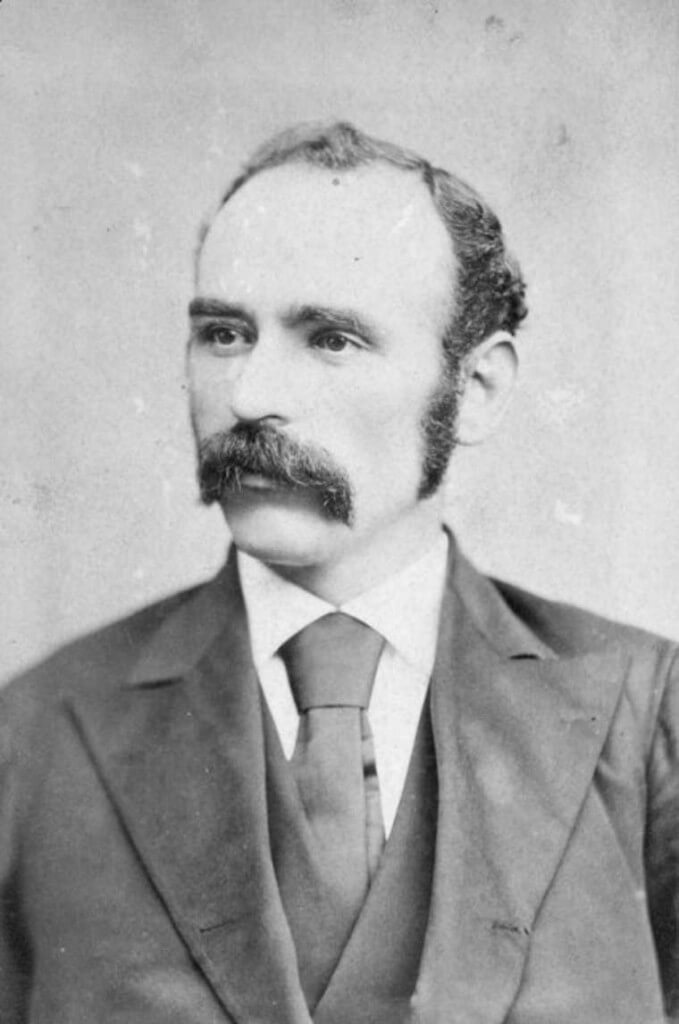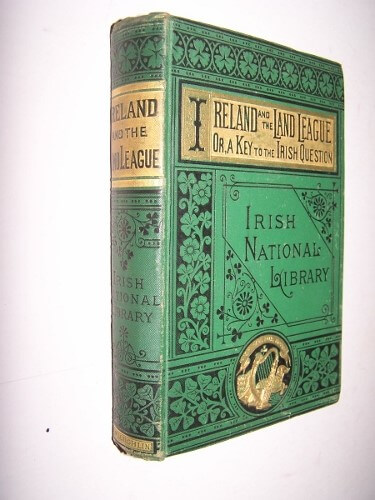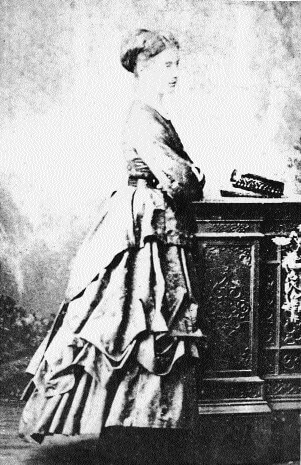The West End Land League
The West End branch of the Land League made political and financial contributions to the original Land League in Ireland, an organization of tenant farmers and Irish nationalists that resisted high rents and evictions in the 1880s.
The Land League was founded in Ireland in 1879 by Michael Davitt, an Irish republican and son of an evicted tenant farmer, and Charles Stewart Parnell, who led the Irish Home Rule Party in the British Parliament. The League’s purpose was to resist high rents for tenant farmers in Ireland, as well as the subsequent evictions of those farmers. Ireland experienced a famine between 1878-1880 which threw 600,000 Irish people, mostly from the western counties, into starvation. The Land League’s platform was defined by the “Three F’s”: fair rent, fixity of tenure (a tenant should not be evicted if they paid rent), and free sale (a tenant should be able to sell their tenancy to another person without needing a landlord’s permission). The “Three F’s” were borrowed directly from the original Tenant Right League in Ireland in 1850, and the movement overlapped strongly with the popular demand for “home rule,” or the self-government of Ireland as opposed to British rule. The word “boycott” originates from the Land League’s response to Charles Boycott, a former British Army officer who became a land agent for Lord Erne, a prominent landlord who charged exorbitant rents. Boycott was in charge of evicting tenants, and some of those evictions turned violent. On September 23, 1880, one-hundred members of the Irish Land League arrived at Boycott’s farm and ordered all of his workers to withhold their labor. The Land League not only convinced the laborers to leave Boycott’s farm, they also persuaded local shops to refuse service to Boycott. This successful “boycott” by the Land League, and more overt acts of resistance by tenant farmers (including injuries to cattle and the murder of some landlords) inspired Irish-Americans to form their own chapters of the Land League.
Irish-Americans in many US cities, including Boston, made financial and political contributions to the Land League after learning of events abroad in the Irish-American press. They did this by forming their own Land Leagues in the US: not only the Irish Land League of the United States, but also chapters in many different neighborhoods. Neighborhoods of Boston with Land League chapters in the 1880s included Roxbury, the North End, South Boston, and East Boston. The West End had its own chapter, which first met on November 30, 1880 in Federhen Hall on North Russell Street. The Boston Globe, which ran a nearly regular column on Land League affairs between 1880 and 1882, reported that the West End Land League had an “enthusiastic meeting” led by chapter president Patrick O’Laughlin, and one of the speakers included P.J. Flatley, the Boston lawyer and Irish nationalist who wrote Ireland and the Land League in 1881; abolitionist Wendell Phillips wrote the book’s introduction. In the words of the Globe, Flatley “referred to the origin and progress of the movement in Ireland and also to the system of ‘Boycotting’ recently established,” and noted that “the Land League deprecated any violence.” The West End Land League subsequently held weekly meetings at other locations, including St. Joseph’s Hall on Cambridge Street, Armory Hall at the corner of Cambridge and North Russell Streets, and an unnamed building on 6 North Anderson Street. Many of these meetings focused on British authorities’ arrests of tenant farmers following the Coercion Act of 1881, which suspended habeas corpus and jury trials in response to the Land League’s activities. The Globe reported on March 16, 1881 that “the interest in the cause of Ireland’s freedom is unabated at the West End, and still the work goes on.”
The Ladies Land League was essential to maintaining the movement in Ireland, after men of the League including Charles Stewart Parnell (who was earlier ejected from Parliament) were arrested by the British in the fall of 1881. Anna Parnell, Charles’s sister, assumed leadership and organized women to keep up the fight until Parnell’s release in April 1882. American chapters of the Ladies Land League were active at the same time, as the “central branch” of the Ladies Land League in Boston met weekly on Tremont Street. Women of the West End met the evening of March 10, 1881 to establish their own branch of the Ladies Land League. One man named Thomas M. Brady spoke to the women assembled at Federhen Hall and “urged the ladies to take up the work which the gentlemen have begun.” An ad hoc committee of five women unanimously elected Mrs. Maurice R. Barry as president of the West End branch of the Ladies Land League. With growing local support, the West End Land League had 190 members, men and women, by June 1881.
When Parnell was imprisoned in Britain, he wrote a “no-rent manifesto” which inspired tenants to go on rent strikes. On February 28, 1882, the West End’s Land League endorsed a series of resolutions that echoed Parnell’s anti-rent position, and sent those resolutions to the Globe, the Herald, and the Pilot. The League unanimously voted in favor of resolutions that denounced “feudal landlordism,” particularly its unequal distribution of land by inheritances, as “the bane of Ireland’s universal ruin and prolonged degradation.” But when British authorities released Parnell in April of 1882, he agreed to retract the no-rent manifesto. This compromise on Parnell’s part was met with Prime Minister William Gladstone agreeing to erase tenant farmers’ back rent and gradually scale back the Coercion Act, making for a successful movement by tenant farmers.
The Land League, including its West End branch, made connections across the Atlantic, and united Catholics and Protestants both in the US and abroad, to resist economic exploitation and harsh evictions in Ireland.
Article by Adam Tomasi
Source: Encyclopedia Britannica; The Irish Story; Hayes, A Political and Social History of Modern Europe (1916); IrishCentral; Moloney, “Land League Activism in Transnational Perspective” (2004); Boston Globe/ProQuest (“The Land League,” December 1, 1880, page 4; “The Land League,” January 26, 1881, page 4; “The Land League,” February 9, 1881, page 1; “Land League,” March 11, 1881, page 4; “The Celtic Cause,” March 16, 1881, page 4; “The Battle in Ireland,” March 23, 1881, page 1; “Land League Matters,” April 13, 1881, page 1; “West End Land League Branch,” June 22, 1881, page 4; “Land League,” December 21, 1881, page 4; “Land League Matters,” March 1, 1882, page 2)










